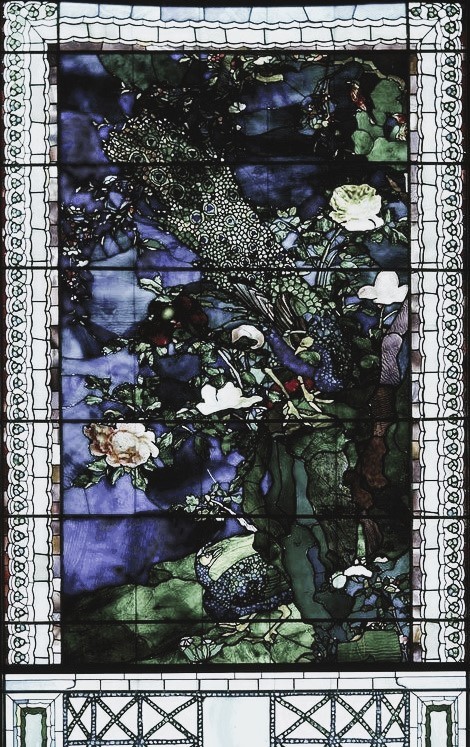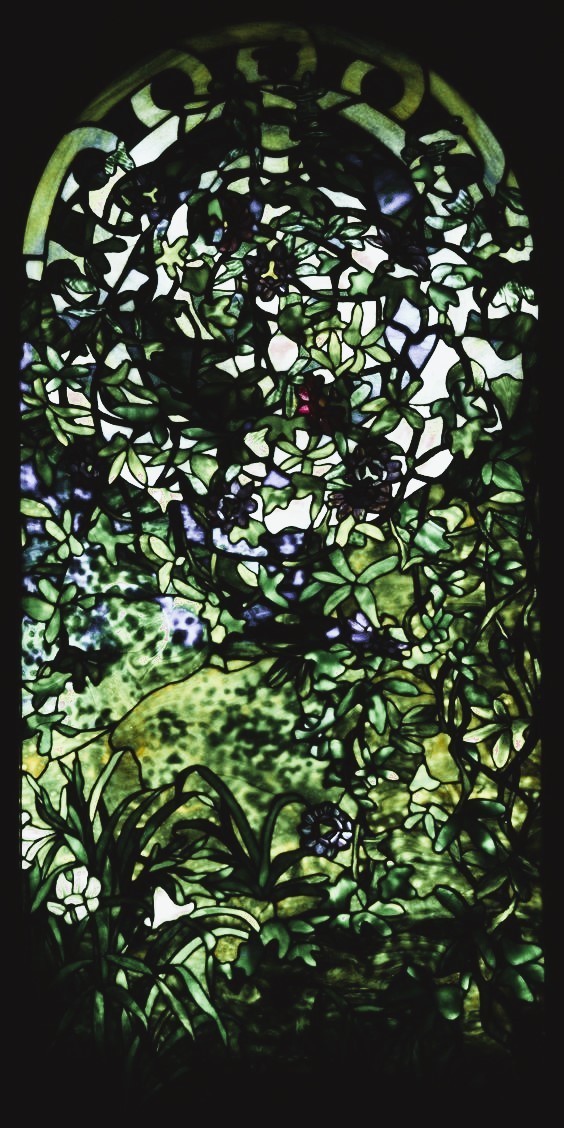#Architectural glass
Explore tagged Tumblr posts
Video
PARALLAX : Steven Holl/Folder Collage by Russell Moreton Via Flickr: russellmoreton.blogspot.com
#research creation#ecology of experience#Parallax#Steven Holl#research collage#physical forms#architectural glass#surfaces#experiential#phenomena#useless flickr uploader#flickr
3 notes
·
View notes
Text
“Matrix No.8”
© EricBrazier.com
#arcade#architectural glass#architectural glazing#architecture#Brookfield Place#buildings#cubes#gateway#glass#glass cubes#glazing#glow#grid#matrices#night#nighttime#opening scroll#scroll#single point perspective#Star Wars Scroll#underlit#windows
0 notes
Text
The Crucial Role Of Architectural Glass In Privacy And Security For Modern Buildings
Glass used in buildings has become a key part of modern design, combining good looks with handy features. It can help keep things private with special types of glass and make buildings safer with strong, layered, or fire-resistant glass. It does more than just look nice. As cities get bigger and buildings get more complicated, architectural glass will remain essential for making spaces that are not only nice to look at but also safe and secure. The many uses of glass in modern buildings show that it's not just about design—it's a big part of making buildings that work well for privacy, safety and being good for the environment.
0 notes
Text
The Role of Architectural Glass in Modern Construction
Modern architecture thrives on innovation and elegance. A key element in this evolution is architectural glass, a versatile material that enhances both form and function in buildings. From sleek skyscrapers to contemporary homes, glass plays an essential role in shaping aesthetics and ensuring energy efficiency.
What is Architectural Glass?
Architectural glass refers to specialized glass designed for use in construction. Unlike traditional glass, it offers enhanced durability, clarity, and insulation. This makes it suitable for various applications, including windows, façades, partitions, and skylights.
In recent years, the demand for architectural glass has grown significantly. Its ability to create open, light-filled spaces has made it a favorite among architects and designers. Additionally, advanced manufacturing processes allow customization to meet unique design and structural requirements. To explore innovative architectural glass solutions, visit United Glass.
Benefits of Architectural Glass
Energy Efficiency
Modern architectural glass provides excellent thermal insulation. Low-emissivity coatings, double-glazing, and laminated options help reduce energy consumption. By regulating indoor temperatures, these features lower heating and cooling costs.
Aesthetic Appeal
Architectural glass elevates the visual appeal of any building. Its transparency creates a seamless connection between indoor and outdoor spaces. It also allows natural light to flow through interiors, enhancing ambiance and reducing reliance on artificial lighting.
Durability and Safety
Technological advancements ensure that architectural glass is both durable and safe. Tempered and laminated glass options withstand extreme weather conditions and provide protection against impact. They also offer soundproofing, making them ideal for urban environments.
The Role of Glass Distributors in the Industry
A glass distributor bridges the gap between manufacturers and end users. They ensure a consistent supply of high-quality materials for various construction projects. By collaborating with trusted distributors, architects gain access to diverse glass options, ranging from decorative panels to energy-efficient solutions.
At United Glass, a leading glass distributor, clients benefit from an extensive range of products tailored to their needs. Their expertise ensures timely delivery and superior quality, making them a go-to partner for construction professionals.
Customization Through Glass Fabrication
Glass fabrication involves modifying raw glass into customized products for specific applications. Processes like cutting, tempering, and laminating transform standard glass into unique, functional designs. This level of customization allows architects to bring bold, innovative ideas to life.
For projects requiring intricate designs or precise specifications, reliable glass fabrication services are essential. United Glass excels in delivering tailored solutions, ensuring each piece meets the highest standards of craftsmanship and durability.
Applications of Architectural Glass
Architectural glass is a cornerstone of modern construction. Its applications span both residential and commercial sectors:
Windows and Doors: High-performance glass enhances insulation and security.
Curtain Walls: These provide structural support and a striking aesthetic.
Partitions: Glass partitions maximize space while maintaining privacy.
Skylights: These bring natural light into interiors, creating a vibrant atmosphere.
By partnering with skilled glass distributors and fabricators, builders can unlock the full potential of architectural glass.
Why Choose United Glass for Your Glass Needs?
United Glass stands out as a trusted provider in the architectural glass industry. Whether you need premium architectural glass, reliable glass distributor services, or expert glass fabrication, they offer unmatched quality and service.
Their commitment to innovation and customer satisfaction ensures every project is completed to perfection. From consultation to delivery, United Glass provides seamless support at every stage.
Conclusion
Architectural glass is more than just a building material; it is a medium for creativity, sustainability, and functionality. With advances in technology and fabrication techniques, the possibilities are endless.
By partnering with experienced providers like United Glass, architects and builders can bring their vision to life. Explore their services for all your architectural glass, glass distributor, and glass fabrication needs. Transform your construction projects with innovative glass solutions today!
0 notes
Text

Welcome to the realm of Kaenat Glass Industries, a name synonymous with excellence, precision, and innovation in the world of glass manufacturing. Our storied journey commenced in the late 1890s within the cozy confines of ‘Moula ux Abdul Ghani,’ a modest shop where we first introduced the vibrant hues of Belgian glass to our local community. Today, after more than a century of unwavering dedication to craftsmanship and innovation, we proudly stand as Kaenat Group, a trusted luminary in the glass manufacturing industry.
0 notes
Text
Elevate Your Space with Antique Mirrors and Architectural Glass

Incorporating antique mirrors and architectural glass into your home or business can significantly enhance the aesthetic appeal and overall ambiance of your space. These elements combine elegance and functionality, offering a timeless touch. Whether you are a homeowner looking to renovate or a business aiming to elevate your interiors, these products provide versatile solutions. As modern trends focus on blending design with functionality, sourcing from a reliable glass distributor or glass wholesaler is key to achieving high-quality results.
The Timeless Appeal of Antique Mirrors
Antique mirrors are more than just reflective surfaces; they are an art form that adds character to any room. With their vintage charm, antique mirrors are perfect for creating a focal point in your living area, dining room, or office space. The intricate designs often found on the frames of these mirrors bring a sense of history and elegance to modern interiors.
When choosing an antique mirror, it's important to consider its placement. Antique mirrors work well in almost any setting, whether used as a centerpiece in a living room or as a subtle accent in a hallway. They can reflect natural light, making spaces appear larger and more welcoming. These mirrors are not only functional but also decorative, helping to balance and elevate the interior design of any room.
Architectural Glass: A Modern Approach to Design
For those seeking a sleek, contemporary look, architectural glass is an ideal choice. This type of glass is used in a wide range of applications, from windows and partitions to decorative panels and facades. It provides a modern, minimalist appearance that complements both residential and commercial spaces. By utilizing architectural glass, you can introduce clean lines and create a sense of openness within any environment.
Architectural glass is also highly versatile, available in various styles, colors, and finishes. Whether you are looking to create a transparent barrier between rooms or add a decorative element to your building’s façade, architectural glass offers endless design possibilities. Its durability and energy efficiency also make it a smart investment for long-term use.
Choosing the Right Glass Distributor and Wholesaler
Finding the right glass distributor is crucial to ensuring the quality and longevity of the materials used in your project. A reputable glass distributor will not only provide you with high-quality products but also offer guidance on the best options for your needs. From selecting the appropriate glass thickness to advising on installation methods, an experienced distributor plays a vital role in the success of your renovation or construction project.
In addition, working with a reliable glass wholesaler can help you source a wide variety of glass products at competitive prices. Whether you're purchasing antique mirrors, architectural glass, or other custom glass solutions, a trusted wholesaler will ensure you receive top-notch materials while staying within your budget.
Enhancing Your Space with Visual Appeal
Incorporating both antique mirrors and architectural glass into your design can transform the look and feel of any room. Antique mirrors bring a sense of history and sophistication, while architectural glass introduces a modern, polished aesthetic. The combination of these elements allows you to create a unique environment that reflects your personal style and the functional needs of the space.
Additionally, the placement of glass elements in your home or business can drastically improve lighting and create the illusion of more space. For example, antique mirrors can make smaller rooms feel larger by reflecting light, while architectural glass can open up confined areas, offering a seamless connection between indoor and outdoor spaces.
Conclusion
Choosing the right materials, such as antique mirrors and architectural glass, can dramatically enhance the appeal of your interior or exterior spaces. By partnering with a reliable glass distributor and glass wholesaler, you ensure that you receive top-quality products tailored to your specific needs. Whether you're aiming for a vintage, elegant feel or a sleek, modern design, these glass solutions offer versatility, durability, and aesthetic appeal.
Transform your space today by investing in the timeless beauty of antique mirrors and the innovative design of architectural glass. With the right approach, you can create an inviting, visually stunning environment that leaves a lasting impression.
0 notes
Text
Enhancing Modern Design with High-Quality Glass Solutions

In the world of contemporary design, glass stands out as a versatile and essential material. From adding a touch of vintage charm with an antique mirror to ensuring structural integrity with architectural glass, glass products are integral to both aesthetics and functionality. In Ontario, leading glass manufacturers and glass suppliers are at the forefront of delivering superior glass solutions for various applications. This article delves into the benefits and uses of different types of glass in modern architecture and design.
Antique Mirrors: A Touch of Vintage Elegance
Antique mirrors are not just reflective surfaces; they are art pieces that bring a sense of history and elegance into any space. These mirrors are characterized by their aged, often distressed appearance, which adds a layer of sophistication and charm to any room.
Beyond their aesthetic appeal, antique mirrors serve a practical purpose. They are excellent for enhancing the perception of space in smaller rooms by reflecting light and creating a sense of openness. When strategically placed, an antique mirror can also highlight key areas of a room, making the space feel more cohesive and thoughtfully designed.
Architectural Glass: Combining Strength and Aesthetics
Architectural glass is a cornerstone of modern construction, offering both strength and beauty. This type of glass is engineered to meet the specific demands of architectural projects, providing durability without compromising on design. It is commonly used in building facades, windows, skylights, and doors, where its properties can be fully appreciated.
One of the significant advantages of architectural glass is its versatility. Available in various forms such as tempered, laminated, and insulated glass, it caters to different needs within a project. For instance, tempered glass is highly durable and is often used in areas where safety is paramount, while laminated glass provides additional security and noise reduction, making it ideal for both residential and commercial properties.
Architectural glass also offers limitless design possibilities. Whether you’re aiming for a sleek, modern look or something more intricate, this glass can be customized to suit any vision. Its ability to merge functionality with design makes it an invaluable material in contemporary architecture.
Glass Manufacturers in Ontario: Quality and Innovation
Ontario is home to some of the top glass manufacturers in the industry. These manufacturers are renowned for their commitment to quality and innovation, producing glass that meets the highest standards for both residential and commercial projects. When you work with these manufacturers, you can expect glass products that not only meet but exceed your expectations.
A key advantage of partnering with Ontario’s leading glass manufacturers is their use of advanced technology and adherence to strict quality control measures. These manufacturers understand the importance of delivering products that are not only durable but also aesthetically pleasing. Whether you need glass for a large commercial building or a custom residential project, these manufacturers have the expertise to deliver superior results.
Glass Suppliers in Ontario: Meeting Diverse Needs
In addition to the manufacturers, Ontario boasts a wide range of glass suppliers who play a crucial role in the glass industry. These suppliers ensure that clients have access to a vast selection of high-quality glass products, from standard panes to custom-cut designs. By working closely with both manufacturers and clients, Ontario’s glass suppliers help bring complex projects to life.
Ontario’s glass suppliers are known for their ability to meet diverse client needs. Whether you’re a contractor, designer, or homeowner, these suppliers offer a broad range of products that cater to various applications. Their extensive inventory ensures that you can find the perfect glass solution for any project, whether it’s a small renovation or a large-scale development.
Conclusion
Glass is an indispensable material in modern design, offering a blend of beauty and functionality that few other materials can match. Whether you’re looking to add a touch of elegance with an antique mirror or need durable architectural glass for a construction project, Ontario’s glass manufacturers and glass suppliers are equipped to meet your needs. By choosing high-quality glass products, you can enhance the aesthetic appeal, functionality, and value of any space.
0 notes
Text






#whimsigothic#whimsigoth#gothic#goth#gothic architecture#art#cathedral#gothic cathedral#art nouveau#stained glass#mosaic#mosaique#art deco#vintage#stained#decor#gothic decor#art nouveau decor#interior#architecture#edited
63K notes
·
View notes
Text
The Importance of Architectural Glass in Modern Design
Architectural glass has revolutionized modern construction and design. This versatile material offers aesthetic appeal and functional benefits, making it a preferred choice for architects and designers. Architectural glass plays a significant role in contemporary structures, enhancing their beauty and functionality.
Types of Architectural Glass
Understanding the various types of architectural glass is crucial for making informed decisions in any construction project. Here are some common types:
1. Back Painted Glass
Back painted glass is a popular choice for interior applications. This glass is painted on one side, providing a sleek, modern look. It is often used for kitchen backsplashes, office partitions, and decorative wall panels. The painted surface is durable and easy to clean, making it both practical and stylish.
2. Float Glass
Float glass is another essential type of architectural glass. It is made by floating molten glass on a bed of molten metal, typically tin. This process results in a smooth, flat glass surface, ideal for windows and doors. Float glass is known for its clarity and uniform thickness, making it a staple in the glass industry.
Benefits of Using Architectural Glass
Architectural glass offers numerous benefits, making it an excellent choice for modern buildings. Here are some key advantages:
1. Aesthetic Appeal
Architectural glass enhances the visual appeal of any structure. Its transparency and ability to reflect light add a sense of openness and elegance. Whether used in large windows, glass facades, or interior partitions, it creates a sophisticated and contemporary look.
2. Energy Efficiency
Modern architectural glass can improve a building's energy efficiency. Specialized coatings and treatments help reduce heat transfer, keeping interiors cooler in summer and warmer in winter. This leads to lower energy bills and a reduced carbon footprint.
3. Durability and Safety
Architectural glass is designed to be strong and durable. Tempered and laminated glass options offer enhanced safety features. Tempered glass is treated to be more robust, reducing the risk of breakage. Laminated glass has a plastic layer between two glass panes, preventing shards from causing injury if it breaks.
Applications of Architectural Glass
Architectural glass is used in various applications, both residential and commercial. Here are some common uses:
1. Windows and Doors
Windows and doors are the most obvious applications for architectural glass. They provide natural light, views, and ventilation. High-performance glass options can also enhance energy efficiency and security.
2. Curtain Walls
Curtain walls are non-structural glass walls often used in commercial buildings. They provide an attractive exterior and allow for large expanses of glass. This design element creates a seamless connection between the interior and exterior spaces.
3. Interior Design
In interior design, architectural glass is used for partitions, railings, and decorative features. It allows for open, light-filled spaces and adds a modern touch to any interior. Back painted glass is particularly popular for adding color and style to interiors.
Choosing the Right Glass Manufacturer
Selecting the right glass manufacturer is crucial for ensuring quality and performance. Glass manufacturers in Ontario offer a range of high-quality products to meet various needs. Look for manufacturers with a reputation for quality and innovation.
Benefits of Working with Glass Suppliers in Canada
Choosing reliable glass suppliers in Canada ensures access to high-quality materials and expert advice. These suppliers provide a wide range of glass products, from float glass to specialized architectural glass. They can help you find the right solutions for your project, ensuring quality and performance.
Conclusion
Architectural glass is an essential component of modern design and construction. Its aesthetic appeal, energy efficiency, and durability make it a top choice for architects and designers. Whether you are working on a residential or commercial project, selecting the right type of glass and working with reputable suppliers is crucial. Explore the benefits of architectural glass and see how it can transform your next project.
0 notes
Text
The Role of Indian Glass Manufacturers in Shaping Architectural Trends Nowadays, any building, be it a house or a commercial building, can be transformed into a work of art with glasses. Many have chosen to incorporate glasses into their designs because glasses have this unique transparency that can turn any dark, boxy structures into bright and beautiful, visually connected spaces.All of these remarkable achievements in the glass industry that are making people’s lives better couldn’t have been achieved without the contributions made by the Indian architectural glass manufacturing sector. To learn more about the fascinating development of the glass sector in India, let’s explore further resources.
#Indian architectural glass manufacturing#Glass Manufacturing India#Indian Glass manuracturers#Indian Glass Industry#architectural glass
0 notes
Text

Old Majestic Glass And Iron Entranceway, Bucharest, Romania
7K notes
·
View notes
Video
Outpost Studio : Architectural Glass by Russell Moreton Via Flickr: russellmoreton.blogspot.com/
2 notes
·
View notes
Text



And another one, because I'm obsessed, and because for some mysterious reason carving with shaking hands is way easier than drawing. Carved shell, moss and resin, sea glass and pearls for a necklace.
Available
#susanna clarke#piranesi#miniature#carving#sea shells#carved miniature#spiral staircase#architecture#marble#sea#flooded#illustration#my art#art#jewelry#sea glass jewelry#sea glass#beach combing#rustic#pearl
4K notes
·
View notes
Text
Key Considerations in Choosing Architectural Glass for Your Projects
Architectural glass plays a vital role in both the aesthetic and functional aspects of building design. Whether used in facades, windows, or interior partitions, architectural glass contributes to light control, insulation, and privacy. Selecting the right type of architectural glass can improve energy efficiency, safety, and comfort. Various factors such as thickness, tint, and durability need to be considered to meet specific requirements for structural integrity and visual appeal.
0 notes
Text
#architectural glass#facedes#glass#glasses#tempering glass#buildings#interiors#home decor#decoration#decor#interior decorating#interior design#living room#rentry decor#interior#bedroom
0 notes
Text
Frequently Asked Questions About Toughened Glass
1. What is toughened glass? Toughened glass, also known as tempered glass, is a type of safety glass that is processed through controlled thermal or chemical treatments to increase its strength. It is significantly stronger and safer than regular glass, as it shatters into small, blunt pieces upon impact, reducing the risk of injury.
2. What are the advantages of toughened glass? Toughened glass offers several benefits, including enhanced safety, durability, thermal resistance, and strength. It is ideal for various applications, such as doors, windows, facades, shower enclosures, and automotive windows, where safety and durability are paramount.
3. How is toughened glass manufactured? Toughened glass undergoes a specialized heating and rapid cooling process, known as tempering, which strengthens its molecular structure. This process involves heating the glass to a high temperature and then rapidly cooling it to induce surface compression and internal tension, resulting in increased strength and safety.
4. What are the applications of toughened glass? Toughened glass is used in a wide range of applications, including residential, commercial, and automotive sectors. It is commonly used for doors, windows, partitions, balustrades, shower enclosures, glass facades, tabletops, and automotive windows due to its strength, safety, and aesthetic appeal.
5. Is toughened glass customizable? Yes, toughened glass can be customized to suit specific requirements in terms of size, thickness, shape, tint, and finishes. Manufacturers offer a variety of customization options to meet the diverse needs of customers for both functional and aesthetic purposes.
6. How does toughened glass enhance safety? Toughened glass is designed to reduce the risk of injury in the event of breakage. Unlike regular glass, which breaks into sharp shards, toughened glass shatters into small, blunt pieces that are less likely to cause serious harm. This property makes it a preferred choice for applications where safety is paramount.
7. Is toughened glass suitable for use in extreme temperatures? Yes, toughened glass exhibits excellent thermal resistance and can withstand sudden temperature changes without cracking or breaking. It is suitable for use in areas exposed to high temperatures, such as kitchen splashbacks, oven doors, and glass facades.
8. How can I clean and maintain toughened glass? Toughened glass is relatively easy to clean and maintain. You can use a mild detergent or glass cleaner with a soft cloth or sponge to remove dirt and stains. Avoid using abrasive materials or harsh chemicals, as they can damage the glass surface. Regular cleaning and maintenance will help preserve the clarity and appearance of toughened glass over time.
9. What quality standards should I look for when purchasing toughened glass? When purchasing toughened glass, look for products that meet industry standards and certifications for safety glazing materials. Ensure that the manufacturer adheres to quality control measures and conducts rigorous testing to ensure the strength, durability, and safety of their products.
10. Where can I purchase toughened glass in Mysore? You can purchase top-quality toughened glass products from reputable manufacturers and suppliers in Mysore. Look for companies that have a proven track record of delivering high-quality products and excellent customer service to meet your specific requirements.
Author - JP Art & Safety Glass


#Toughened glass#Tempered glass#Safety glass#Glass manufacturing#Glass fabrication#Toughened glass suppliers#Toughened glass products#Glass industry#Custom glass#Architectural glass#Commercial glass#Residential glass#Automotive glass#Glassworks#Glass fabrication company#Glass manufacturer#Glass supplier#Toughened glass production#Quality glass products#Mysore glass manufacturers
0 notes
